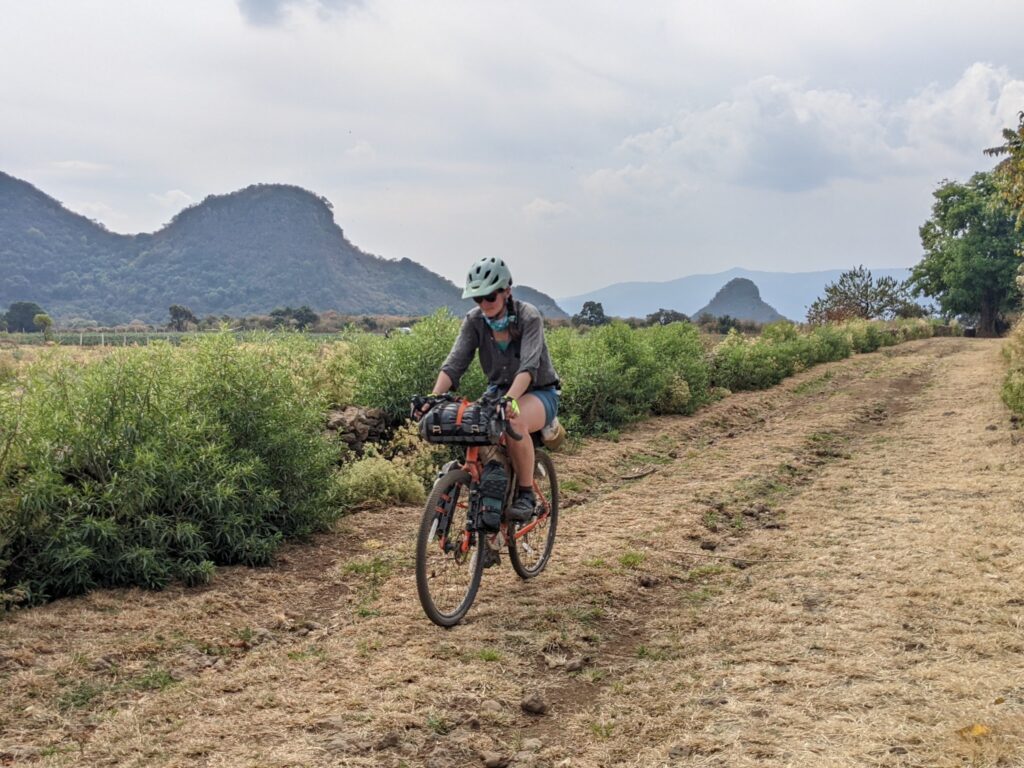
Arriving around lunch time, we sat eating a bag of rotisserie chicken and rice, held our daily check in with each other, and watched life unfold. Even into recent days, the ahuehuetes are a stop along pilgrimage, thus a giant golden Virgerncita Maria also grew out of the hillside behind this specimen. I was enamored with the 230 year old giant, though Marc had talked about a 2000 year old cypress he had met in Oaxaca and my mind boggled to imagine the perspective of a something of that size and age. But, that was still 500 km away, a creature from the long ago, somewhere in the distant future.
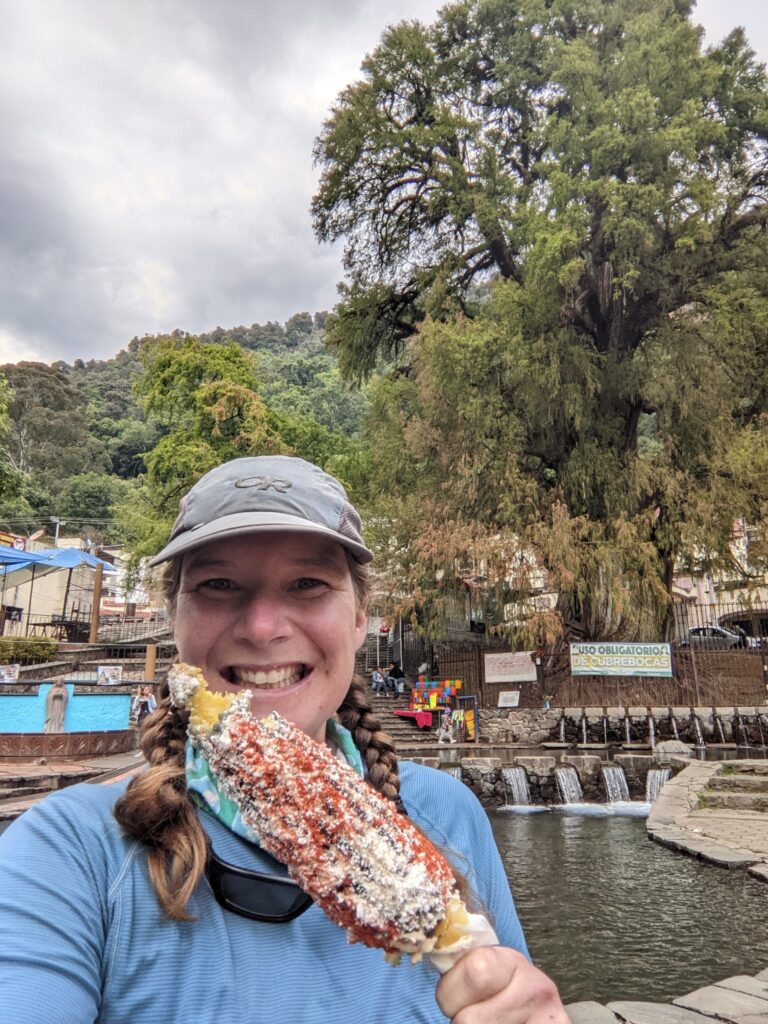
Lore around the trees is quite built up and thus, so is Latin style infrastructure. The road was lined by comedor stalls, vendors hocking snacks, trinkets, and coronetas. An abeulita had no hard time of convincing me to buy an elote al palo. Traditions hold of buying a coroneta and wearing it until the end of your pilgrimage, or until you get bored. We only saw one couple wearing them while taking selfies of making out with their mouths full of elote. This level of comfort with PDA across Latin America has fascinated us.
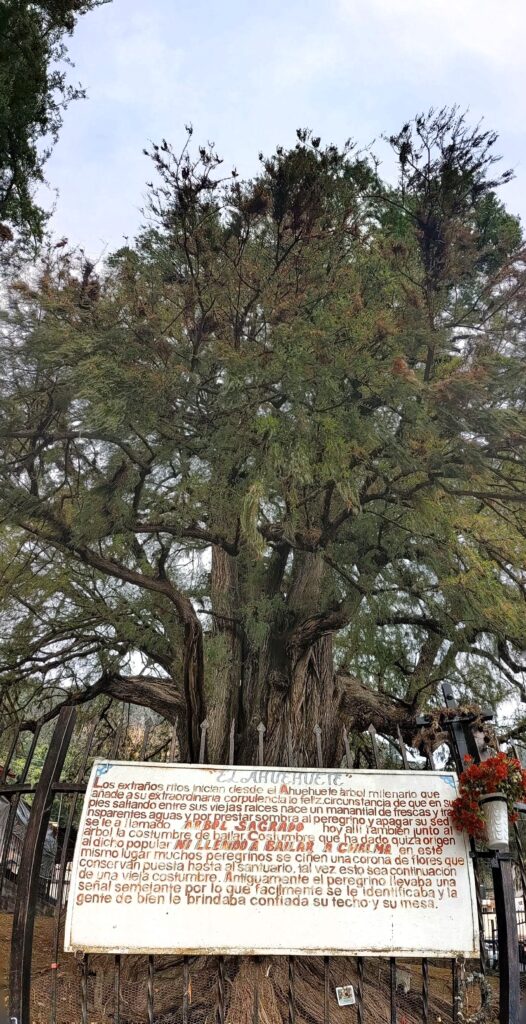
All other stages of life also played out. The tree himself was inside a black, wrought iron fence hung with signs and mementos. The waters are considered sacred, so, as we ate, we watched a set of adult children hold their aged mother by the waist as she bent to cup handfuls of water to rinse over her head and joints. Young mothers similarly held on to their toddlers who dangled over the pools. A guy wearing a Black Sabbath T-shirt and pierced lip walked a very disinterested pony around letting folks pose their kids on it for pictures for 10 pesos. A pack of young boys ran around playing and splashing. A group of teenage siblings swam and played amongst the sapling cypress downstream. I like thinking about our species playing together, an unspoken enjoyment in one another’s company.
![]()
The bucket hatted toddling son of the couple who sold colorful jugs at the base of the tree, engaged his dad in a very short Nerf gun war across the water and then a very long and elaborate effort to regain the dart which floated out along the various pool. The dad, dressed all in black with shiny chic black combat boots, would use a water gun to move the dart toward his wee one who somehow just missed grabbing it as it fell over each subsequent small cascade into the next pool. Once I realized the project was less about successful recovery of the toy and more about time spent together, I chuckled along and cheered when they eventually returned to their sales-post near the fence with the dart recovered.
![]()
Recognizing the importance of these waters to the locals, I thoroughly rinsed the plastic bottles of soda which had come with our chicken lunch and filled it at one of the spouts from the base of the tree. I brought this back up to a pair of vendors at the market in Santa Monica well up the mountain, who had helped us out. The teenage grandson had wanted to use his English and I could see abuelo subtly smiling behind his table of wares. They were both very honorable and the young man had refused my offer of a few pesos in thanks for their directions, saying in English, “it’s no problem.”
In regions where poverty and need are so pervasive, I am always struck by the dignity with which some will refuse financial remuneration. It is a matter of pride. How to express gratitude to these folks can be a challenge for those of us accustomed to the grueso dealing of cash. Some go to gifts I’ve learned are: thanks, sharing food, words of praise, mini English lessons to their children, connecting their pueblos with ours, time, and stories. Putting a bit of thought into it and watching what is meaningful to them. In this case here before me, flowed the answer.
I scooped the bottle full and carried it back up the mountain to where we resumed our route. I spoke with the grandson in full view of other community members. Gauging my conversation based on the scope of his vocabulary, which words to say in English and spinning the rest in Spanish so that I would not confuse or embarrass him (greetings and words like “please” “thank you” “cool” “I like your hat” and anything you can detail with hand gestures are safe cross-territory). Then I turned to abuelo, thanked him for his help, complimented his grandson, and presented him with the bottle of water. He rose, grinning, held it up and said “ella me trajo agua sagrada.” I pedaled away and into another steep climb still grinning and glowing from the interaction.
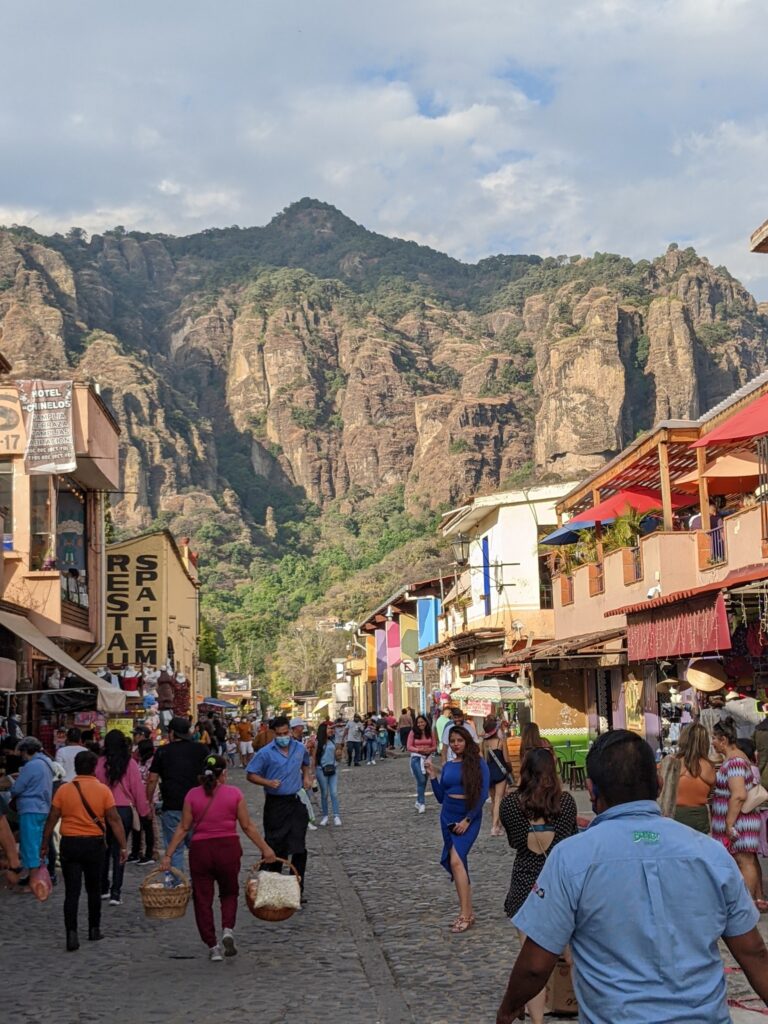
We do not stay out after dark and when strangers ask or invite us, we simply tell them we don’t drink. The truth is, we really aren’t big drinkers anyway but it’s just easier to not go there at all. These are basic safety precautions we have kept since the beginning because they keep us out of potential gray areas or risk situations. Other long term travelers have told us they do the same but don’t want to talk about it in their blogs because they would rather not open that bag of worms.
So I will.
Respecting language use and tempering it amidst excitement to share, as individuals privileged enough to travel, is tough. I suspect it to be a leftover from reptilian ‘survival’ brain thinking, believing yours is the ‘right’ way to do things. I try to be mindful of language and tone when asked to advise young travelers or even when consulting with seasoned travelers. Phrases such as ‘must’ or ‘you HAVE to’ or defining what is an ‘authentic’ experience is sets a tone and creates an unnecessary and sometimes unhelpful impetus.
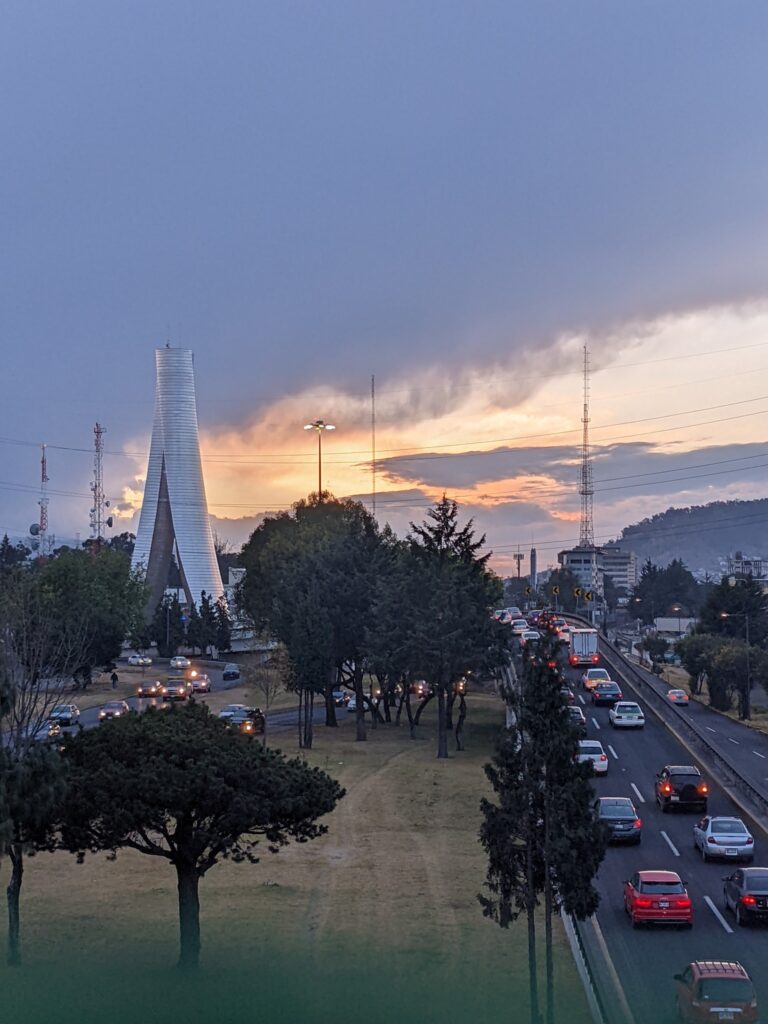
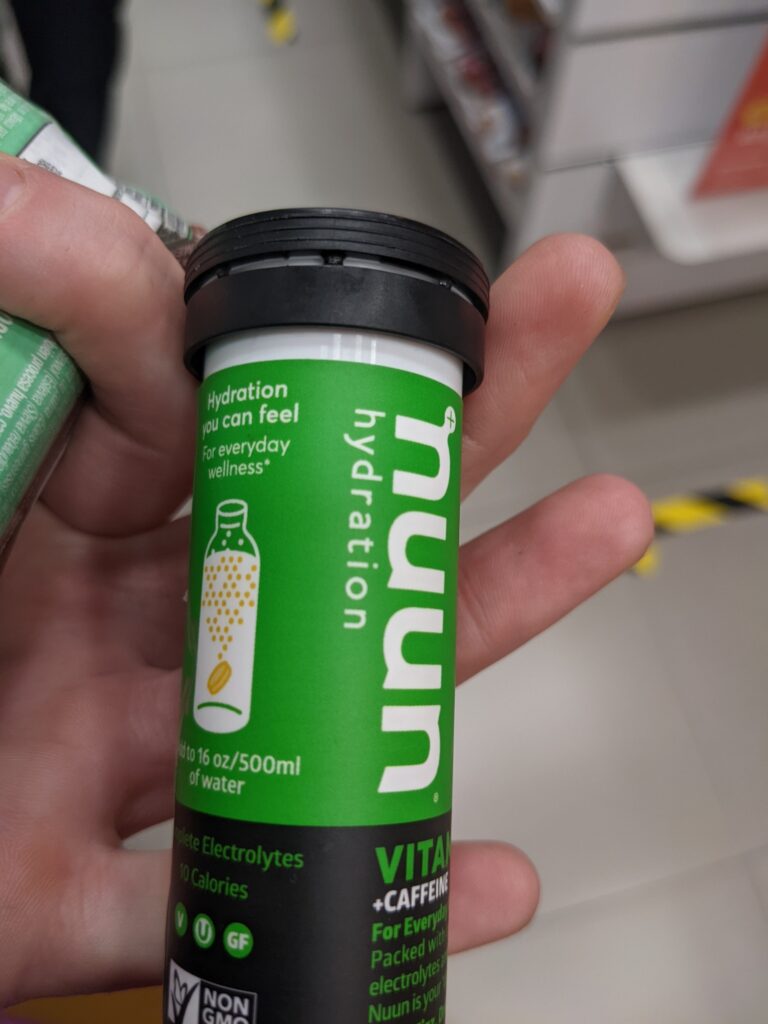
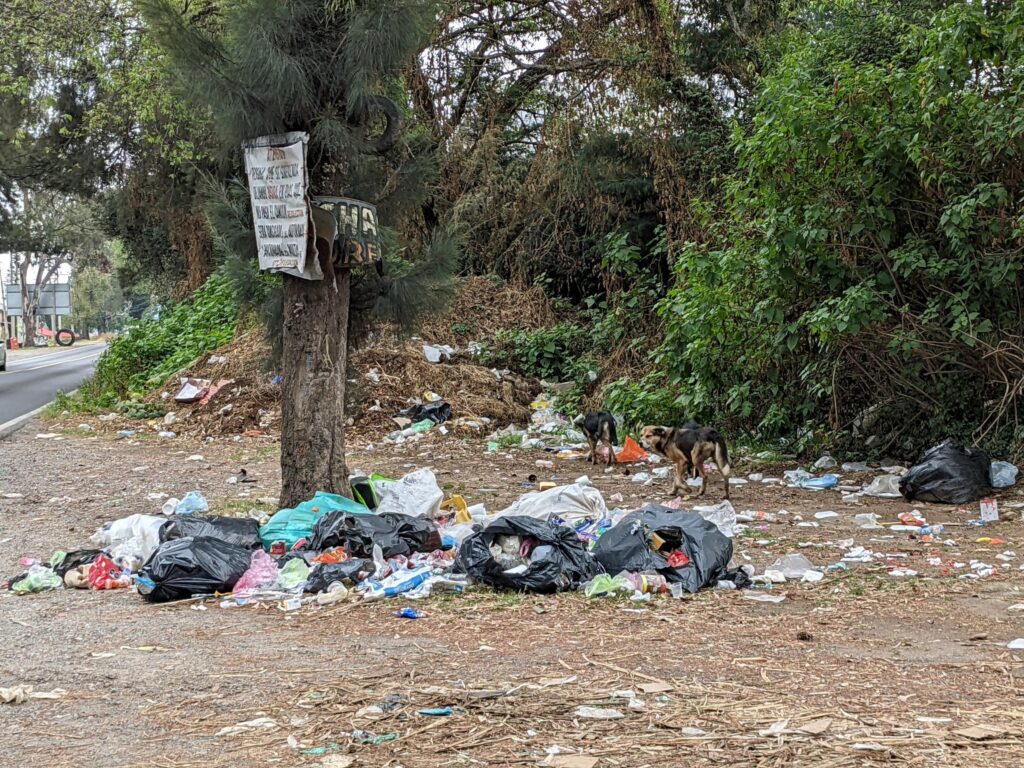
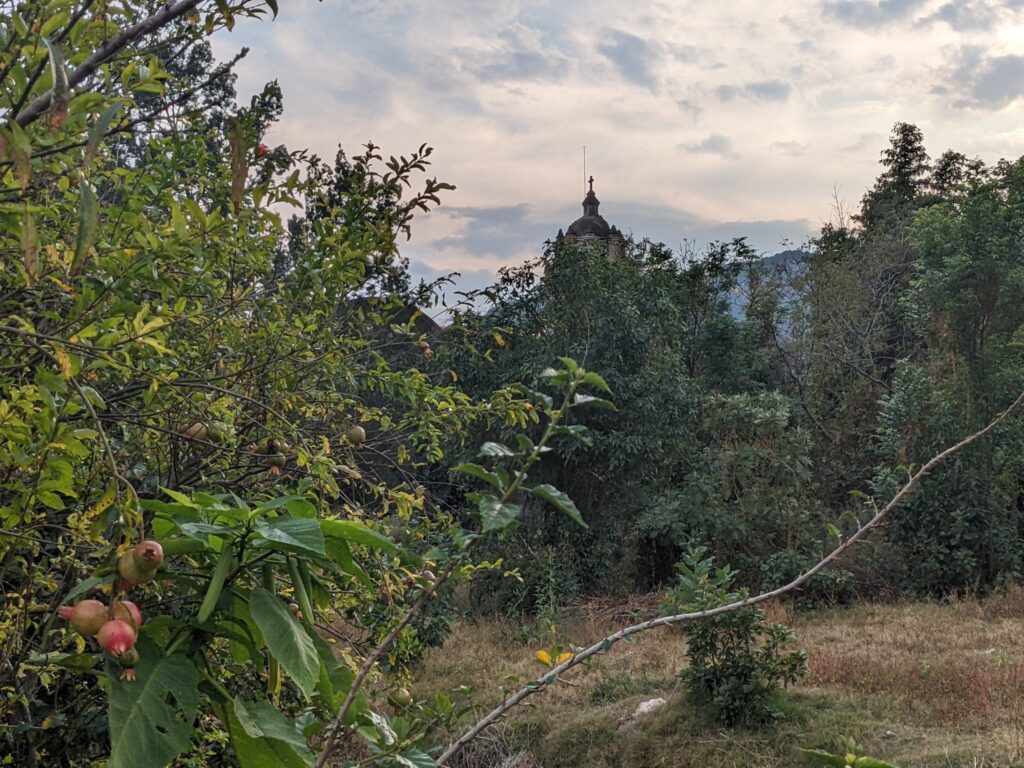
How to get involved:
-Contribute and join the journey with monthly support on Patreon.
-Make a 1 time gift via PaPal to itineranthughes@gmail.com
(All proceeds go to the Odyssey and at least 10% is given back to communities along the way)
-Subscribe to receive weekly stories at the bottom of page here.
-Like and Follow on Facebook.
-Follow on Instagram.
-Subscribe on YouTube.
-Follow on Twitter.
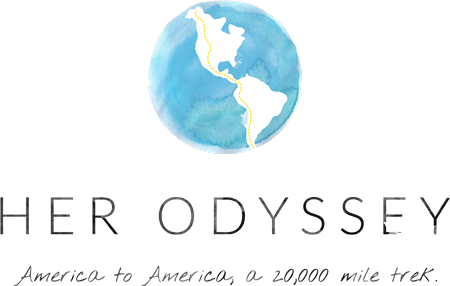


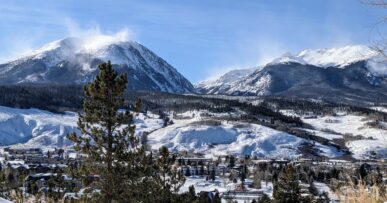


Comments (2)
Hi Fidgit. The most touching experience in this part of your adventure, in my opinion, is the reaction of the grandfather up in the mountain, when you gave him “the sacred water ”, that brought tears on my face!
Thank you for writing down your experiences. A book is in the making!
Thank you for reflecting this, I really appreciate it!